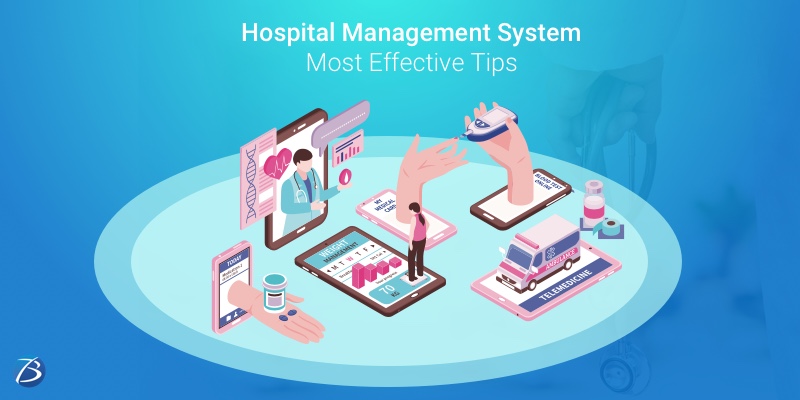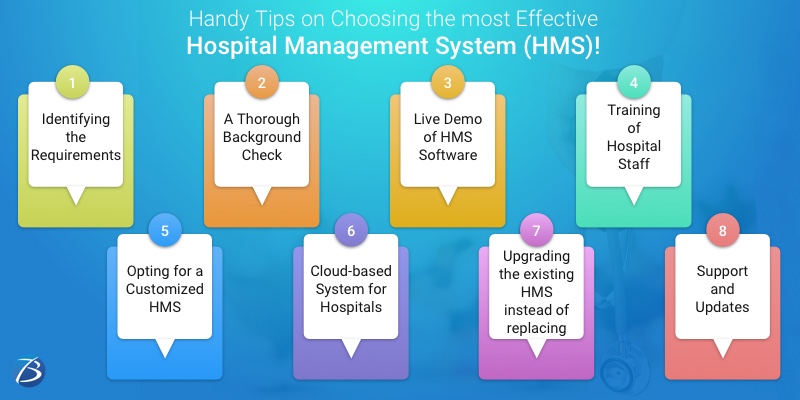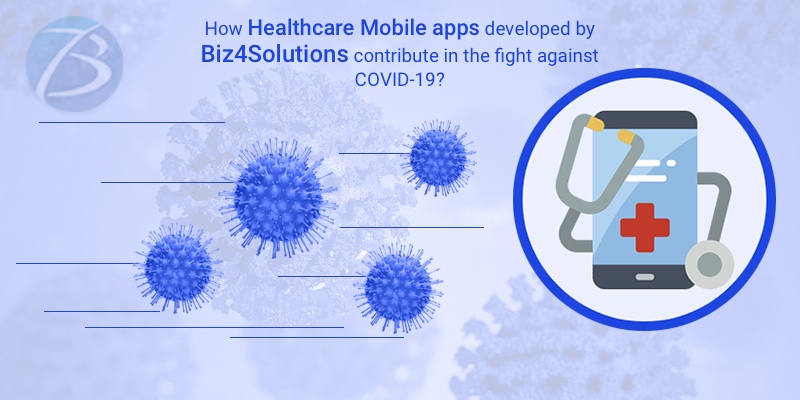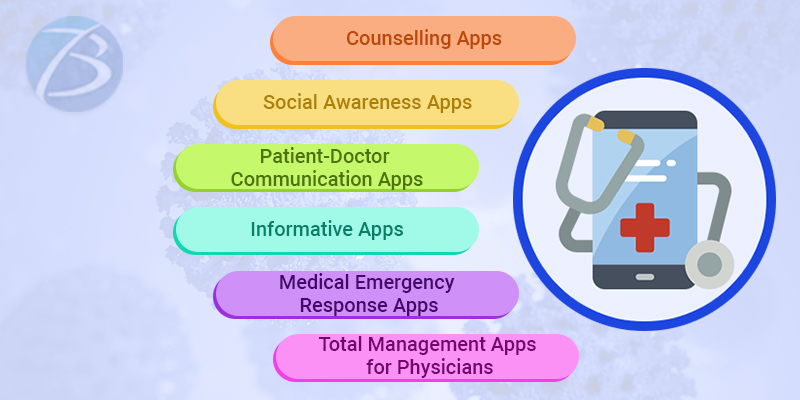Handy Tips on Choosing the most Effective Hospital Management System (HMS)!


Present-day patients expect services like receiving reminders via email/text messages, accessing their electronic health records whenever needed, and availing of online video doctor consultations from their medical consultants and physicians. Practitioners too, prefer advanced and smart Healthcare management software solutions for easing out their workload. Therefore, it has become necessary for hospital bodies to revamp their traditional infrastructure and implement a technology-infused approach. And, what can be a better option than employing a comprehensive HMS (Hospital Management System)?
A digitally smart HMS has been garnering popularity in the healthcare industry for the last few years. However, for receiving optimum benefits, it’s crucial to employ the right HMS that perfectly aligns with the requirements of your medical facility. So, while selecting the vendor agency that offers Healthcare Development Services, there are certain factors to consider and some standard practices to follow. My write-up provides all-inclusive guidance on how to pick the right HMS (Hospital Management System) for your healthcare facility. But, before we delve deeper, let me provide you useful pieces of information on HMS and its benefits.
Hospital Management System: Overview
A Hospital Management System, commonly known as HMS, refers to an app or a software system that is employed for gathering and digitally storing patient data and keeping the diverse departments of a healthcare facility connected on a common platform. An HMS offers several modules like Patient management system software, Doctor Management System, Online Appointment Management System, Lab Test System, Invoice Management System, Administrative Rights Management System, Drug Management System, etc.
An HMS executes the following functions.
- Assists in tracking, planning, and carrying out daily activities in a healthcare organization
- Minimizes management burdens through automation of processes and the availability of information to all stakeholders
- Manages the entire lifecycle of patients’ treatment starting from their hospital admission till their discharge.
- Records medical data, stores medical reports, generates e-prescriptions, processes bills, maintains patients’ contact details, tracks appointment schedules, saves insurance information for future reference, etc.
Hospital Management System: Benefits
Take a look at the key benefits ushered in by an HMS.
- Provides easy access to patients’ healthcare data as well as the accurate medical history of patients
- Minimizes chances of errors and enhances the efficiency of medical practices resulting in improved patient care
- Ensures security of sensitive data and retrieval of data whenever required
- Saves time and turns out to be cost-efficient
- Reduces the documentation workload
- Exercises better audit control and compliance to healthcare policies
- Ensures better revenue management and accountability for hospital bodies
Picking the Right HMS (Hospital Management System): Best Practices

Identifying the Requirements
It is crucial to identify the specific requirements based on the workflow of your healthcare facility before you proceed to select an HMS for your hospital. This can be done by holding discussions with your hospital management staff and other stakeholders on the necessary functionalities as well as additional features needed by your organization. These brainstorming sessions will not only assist you to pick the best suited HMS; but also provide you a clear understanding needed for comparing and analyzing the pros and cons of different HMS products.
A Thorough Background Check
Before selecting an HMS it is important to conduct a thorough background check of various HMS available in the market as well as the recognition and previous work experience of the vendor agency. For this, you need to check online ratings and reviews and feedback from the company’s existing/previous customers.
Live Demo of HMS Software
Before finalizing the HMS for your medical organization, your vendor must present a demo of the HMS features. Such a demo will not only enable you to validate the specifications from the products but also determine if that HMS will prove useful and reliable for your patients and organization. Prior to the demo, prepare a report containing your concerns and pain points and keep this report handy during the demo. This strategy will help you comprehend during the demo how usable the HMS will be for your facility and what problems will it address.
HMS Implementation: Standard Practices
The effective implementation of HMS involves processes like establishing the basic setup, training of staff, and pilot testing. The conventional approach of implementation includes commencing with a modest beginning and then implement an enhanced automation prospecting. On the other hand, the phased approach of HMS implementation empowers the hospital management to reduce the workload of hospital operations bit by bit.
Training of Hospital Staff
Improper knowledge and understanding of the HMS by the hospital staff may result in disastrous outcomes. Therefore, train your staff well for educating them about its functioning and maintaining the privacy and security of medical data. The training session may include fundamental setup and pilot testing and can be customized for various departments as per their needs.
Opting for a Customized HMS
Even if you have finalized HMS software after careful scrutiny of requirements and features, you’re likely to miss out on certain indispensable functionalities. Moreover, you might need to implement advanced features down the line to cope up with changing times. Such issues can be resolved if you opt for a customized HMS. Customization happens to be a crucial prerequisite when automating your hospital functions. As such, it is advisable to pick a vendor who will craft customized HMS software tailored to meet the needs of your hospital’s workflow and allow you to add advanced functionalities as and when required.
Cloud-based System for Hospitals
When installing an HMS solution for your medical facility, you need to decide on its location – whether a client-server or a cloud-based system. Also, it’s advisable to go for cloud-based HIS software. The reasons are as follows:
- It can be effortlessly be scaled and will help you to accommodate the growth of your organization in the coming years.
- This system provides remote access via a browser and hence is accessible from any location.
- Furthermore, this model turns out to be a cost-efficient solution as it involves paying monthly charges and rules out the need for investing in resources and managing them.
However, while finalizing the HIS/HIMS software, do not forget to validate its scaling abilities.
Upgrading the existing HMS instead of replacing
‘Your hospital already possesses an HMS, but needs to be enhanced as per the latest practices!’ Well, in this case, there isn’t any need for reinventing the wheel by replacing the existing software. Instead of investing in new software, look out for vendor firms who will upgrade your existing HMS as per your need and integrate the additional features in the old version itself.
Support and Updates
Your hospital’s HMS software is subject to real-time scenarios as well as the loads which mandate the reputation of your workforce post-implementation of the HMS. Several spontaneous and unanticipated issues are likely to crop up. Such issues need correct handling within the right SLA (service level agreement). Additionally, HMS systems need auto updations from time to time. Hence, select a vendor who provides the facilities of updations and support.
Are You Interested in Building a Top-Class Website or Mobile App?
Key Takeaways:
Times are changing and so are the expectations of patients, doctors, and also the hospital staff! Ever since the HMS solutions have transformed the functioning of the healthcare sector, the doctor-patient community prefers the digitally functioning hospital set-up over the traditional one. So, it’s high time to adopt a highly functional HMS that fulfills the needs of your hospital body.
Looking for reliable healthcare app development services to craft a customized HMS for your healthcare body? Contact us!



